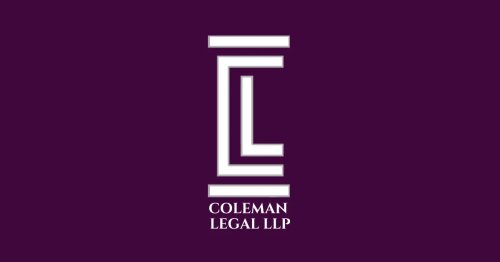Best Native People Lawyers in Dublin
Share your needs with us, get contacted by law firms.
Free. Takes 2 min.
List of the best lawyers in Dublin, Ireland
About Native People Law in Dublin, Ireland
Dublin, Ireland, is a multicultural city with a growing population of Native People, including indigenous people from other parts of the world and Irish Travellers, an indigenous ethnic minority in Ireland. Native People's law encompasses a wide range of issues, including human rights, land rights, cultural preservation, and discrimination. Legal advocacy for Native People often involves ensuring their rights are respected and protected under local and international law.
Why You May Need a Lawyer
There are several situations where Native People in Dublin may require legal help:
- Discrimination: Facing discrimination in various aspects of life, such as employment, housing, or education.
- Land Rights: Issues related to the ownership, use, and preservation of land that has cultural or historical significance.
- Cultural Preservation: Legal matters concerning the protection and promotion of cultural heritage, language, and traditions.
- Human Rights: Ensuring that the fundamental human rights of Native People are upheld and protected.
- Legal Status: Navigating issues related to citizenship, residency, and legal status in Ireland.
- Social Services: Access to social and public services, including healthcare and education.
Local Laws Overview
Several key aspects of local laws are particularly relevant to Native People in Dublin, Ireland:
- Equal Status Acts: These acts prohibit discrimination on various grounds, including race, ethnicity, and membership of the Traveller community.
- Ninth Amendment of the Constitution: This amendment acknowledges the special position of Irish Travellers, providing them with certain rights and protections.
- Planning and Development Acts: These laws include provisions for the consideration of cultural heritage and the needs of culturally significant communities.
- Human Rights and Equality Commission Act: This act established the Irish Human Rights and Equality Commission, which works to protect the rights of all individuals, including Native People.
- International Agreements: Ireland is a signatory to various international agreements and treaties that protect the rights of indigenous peoples, such as the United Nations Declaration on the Rights of Indigenous Peoples (UNDRIP).
Frequently Asked Questions
What is meant by "Native People" in the context of Dublin, Ireland?
In this context, "Native People" refers to indigenous populations, including Irish Travellers and indigenous people from other parts of the world residing in Dublin.
Are there any specific legal protections for Native People in Ireland?
Yes, there are specific legal protections under national and international laws that aim to safeguard the rights of Native People, including the Equal Status Acts and the UNDRIP.
How can I report discrimination against Native People in Dublin?
You can report discrimination to the Irish Human Rights and Equality Commission or the Workplace Relations Commission, depending on the context of the discrimination.
What are the land rights of Native People in Dublin?
Land rights can be complex and typically involve issues related to ownership, use, and cultural preservation. Legal advice is often needed to navigate these matters.
Is there any organization in Dublin that advocates for Native People's rights?
Yes, several organizations work to protect and advocate for Native People's rights, including Pavee Point Traveller & Roma Centre and the Irish Traveller Movement.
Can Native People access social services in Dublin?
Yes, Native People have the right to access social services, including healthcare and education, just like any other resident of Dublin.
What steps can I take to protect my cultural heritage legally?
Engage with legal professionals who specialize in cultural heritage and explore legal frameworks and protections under Irish law and international treaties.
How does the Irish government support Native People?
The government has initiatives and policies aimed at supporting Native People, including funding programs and implementing legal protections.
Do Native People have representation in Dublin's local government?
While there may not be specific representation for Native People, advocacy groups and organizations work to ensure their voices are heard in local government.
What should I do if I need legal advice as a Native Person in Dublin?
If you need legal advice, consider reaching out to a lawyer who specializes in Native People's law or contact advocacy organizations for guidance and support.
Additional Resources
Here are some recommended resources and organizations related to Native People that can be helpful for someone in need of legal advice:
- Pavee Point Traveller & Roma Centre: An advocacy organization for Irish Travellers and Roma people.
- Irish Human Rights and Equality Commission: A statutory body promoting and protecting human rights and equality.
- Irish Traveller Movement: An organization advocating for the rights of Travellers in Ireland.
- FLAC (Free Legal Advice Centres): Provides free legal advice and advocates for access to justice.
- Citizen's Information: Offers information and advice on public services and entitlements in Ireland.
Next Steps
If you need legal assistance, here are the steps you can take:
- Identify Your Need: Clearly define the legal issue you are facing.
- Seek Legal Advice: Contact a lawyer who specializes in Native People's law. Utilize resources like FLAC for free initial advice.
- Gather Documentation: Collect any relevant documents and evidence related to your case.
- Contact Advocacy Groups: Reach out to organizations like Pavee Point or the Irish Traveller Movement for support and guidance.
- Follow Legal Procedures: Work with your lawyer to navigate the legal process and protect your rights.
Lawzana helps you find the best lawyers and law firms in Dublin through a curated and pre-screened list of qualified legal professionals. Our platform offers rankings and detailed profiles of attorneys and law firms, allowing you to compare based on practice areas, including Native People, experience, and client feedback.
Each profile includes a description of the firm's areas of practice, client reviews, team members and partners, year of establishment, spoken languages, office locations, contact information, social media presence, and any published articles or resources. Most firms on our platform speak English and are experienced in both local and international legal matters.
Get a quote from top-rated law firms in Dublin, Ireland — quickly, securely, and without unnecessary hassle.
Disclaimer:
The information provided on this page is for general informational purposes only and does not constitute legal advice. While we strive to ensure the accuracy and relevance of the content, legal information may change over time, and interpretations of the law can vary. You should always consult with a qualified legal professional for advice specific to your situation.
We disclaim all liability for actions taken or not taken based on the content of this page. If you believe any information is incorrect or outdated, please contact us, and we will review and update it where appropriate.











